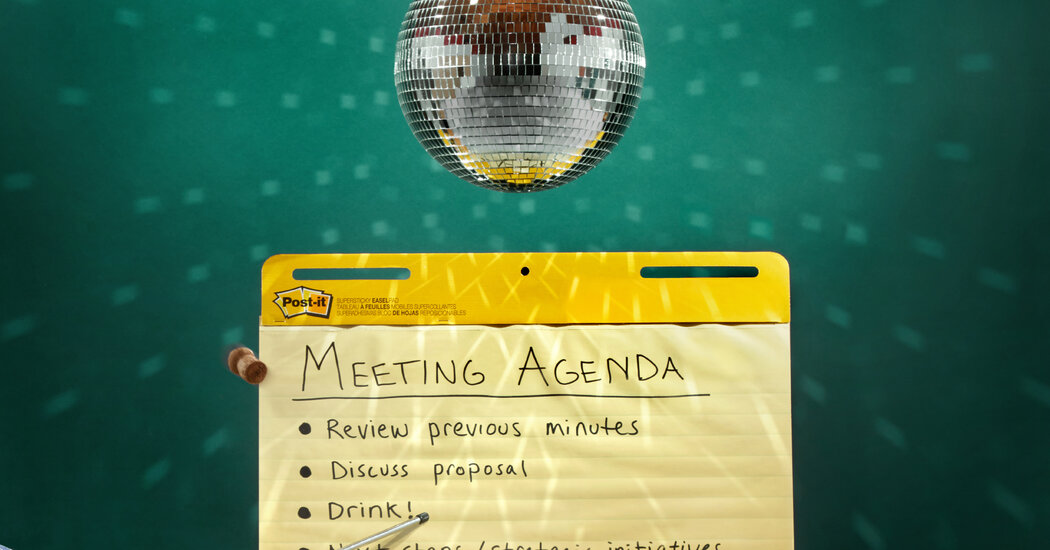
Send questions about the office, money, careers and work-life balance to workfriend@nytimes.com. Include your name and location, or a request to remain anonymous. Letters may be edited.
Not So Happy Hours
I recently started a new job I’m excited about, doing good work. As part of the job, I am asked to host or attend dinners, parties and after-hours events several nights a week, often with my team. I’ve maintained a firm “don’t get drunk at work events” policy for many years now, but I’ve found that my boss and others on my team are heavy drinkers and keep late hours. Events with a scheduled end time of 9:30 p.m. will often drag on until 2 or 3 in the morning. When we work late, we don’t start late; we’re expected to be in the office at 9 a.m. The late nights involve more than hanging out; I left a recent event around 10:30 p.m., only to learn I’d missed a consequential conversation. The result? I feel behind, I lack context, and I’m borderline resentful.
As a new employee, I’m inclined to create strong boundaries and be extra protective of my time. At the same time, it matters to me to build trust and spend time with my colleagues, and I don’t want to be a bad sport. In every other way, this job is a superb fit, and I’d like to put down roots here. How can I ride the line?
— Anonymous, New York, N.Y.
Having to work all day and party with colleagues all night sounds pretty miserable. Of course you’re feeling resentful. Most people would, in your position. Clearly, this kind of socializing is an important part of this company’s work culture but it isn’t sustainable if you aren’t a hard partyer or want to have any kind of personal life outside of work. Your inclination to have strong boundaries and protect your time is a good one. You have to reconcile that doing so may come at a cost in that sometimes, you will miss consequential conversations.
I imagine you can find a workable balance between protecting your time and participating in these after-hours activities once or twice a week. As you become more established, look for opportunities to suggest alternatives to these after-hours activities. Can any of these networking events take place during the traditional workday? Can some of those activities take place without heavy drinking? Regardless, your “don’t get drunk at work events,” policy is a good one. Don’t abandon it.
Unequal Pay for Equal Work
A male friend and former co-worker and I (a woman) have a very cordial relationship where we discuss our salary and other work-related matters. A position at my current employer opened that was a good fit for his skill set. I recommended him and he got the job. Even though we now have the same type of position, same years of experience and almost identical résumés, he is making $60,000 more than I am. Adding insult to injury, our résumés only differ because I have a master’s degree and several designations relevant to my industry while he does not.
I brought this up with our boss and was told that I accepted a fair offer the year prior and I shouldn’t concern myself with what other people make. Before my friend was gracious enough to share his compensation, I was otherwise content in my job. Now knowing this information is eating me alive. Short of contacting an employment attorney, I am wondering what recourse I have.
— Anonymous, New York
Unfortunately, when you demonstrate to employers that you’re willing to work for less than you deserve, they will let you do exactly that. You’ve done what most people would recommend — talked to your boss, and your boss responded as I would expect a manager would, with a cop-out. When you are making so much less than a colleague who is a peer that is absolutely your concern. And the disparity is criminal. You could revisit the conversation with your boss and ask what you need to do to receive a substantial raise but that seems like a dead end.




